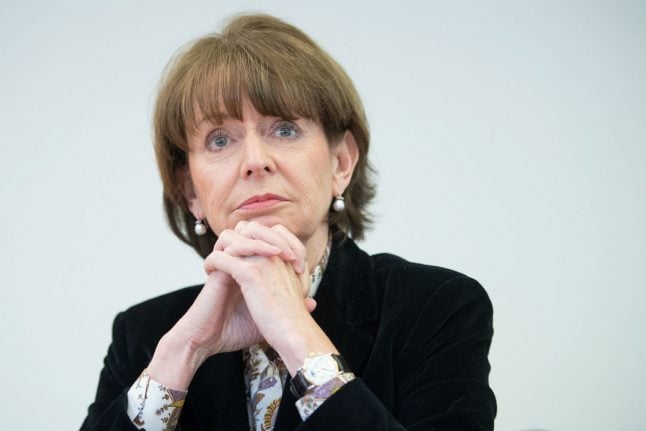Germany has been shocked by news that the top suspect in the June 2nd
shooting of Kassel city local politician Walter Lübcke is an alleged
neo-Nazi, believed to have been angered by an influx of refugees and migrants.
Now several other local politicians, who have been attacked or targeted in
the past for welcoming asylum seekers, report that they have again been
threatened.
SEE ALSO: Political link suspected in German pro-migrant politician's murder
One of them, Cologne mayor Henriette Reker, was stabbed in the neck by a
right-wing sympathizer in October 2015 and has been under police protection ever since.
“The mayor has received death threats,” a Cologne police spokesman told AFP.
Another mayor, Andreas Hollstein, of the small town of Altena in North
Rhine-Westphalia state, on Tuesday confirmed to German news agency DPA that he had again received death threats.
He was slashed with a knife in 2017 after accepting a national award from
Chancellor Angela Merkel for Altena's work with refugees.
His attacker had criticized Hollstein for taking in refugees, it emerged
during the trial.
Holger Kelch, the mayor of Cottbus, said he had received 500 hate mails and three death threats since 2017 when he called for calm in the city after it emerged the killer of a German pensioner came from Syria.
SEE ALSO: A Portrait of Cottbus, the German town that stopped accepting refugees
“Along with my family, I am under police protection the whole day,” Kelch,
a member of Merkel's CDU party, told Berlin newspaper BZ.
“Since then, I think about my security all the time and sometimes I am
afraid.”
News of the death threats comes in the wake of the Lübcke case, which
prosecutors are treating as a political murder.
The 65-year-old was found on the terrace of his house in Wolfhagen near
Kassel, having been shot in the head at close range.
A 45-year-old suspect was arrested last weekend, with media reporting he
had previously launched a failed pipe bomb attack against a refugee shelter.
Lübcke was an outspoken defender of Merkel's decision to welcome refugees and in 2015 drew the wrath of the far right by telling Germans who objected that they could leave the country.
Tributes to Luebcke sparked an avalanche of negative comments and mockery on social networks, many welcoming the murder — a response that was slammed by German President Frank-Walter Steinmeier.
Interior Minister Horst Seehofer on Tuesday called the killing an “alarm
bell” for Germany and acknowledged that “right-wing extremism is a significant and serious danger for our society”.
Interior Minister Horst Seehofer on Tuesday called the killing an “alarm
bell” for Germany and acknowledged that “right-wing extremism is a significant and serious danger for our society”.



 Please whitelist us to continue reading.
Please whitelist us to continue reading.
Member comments